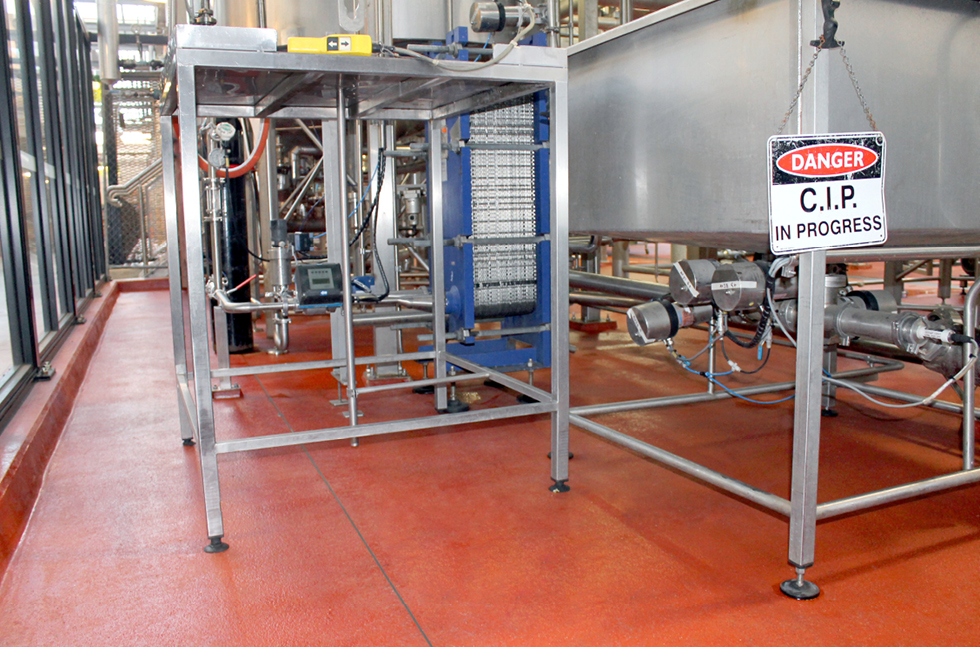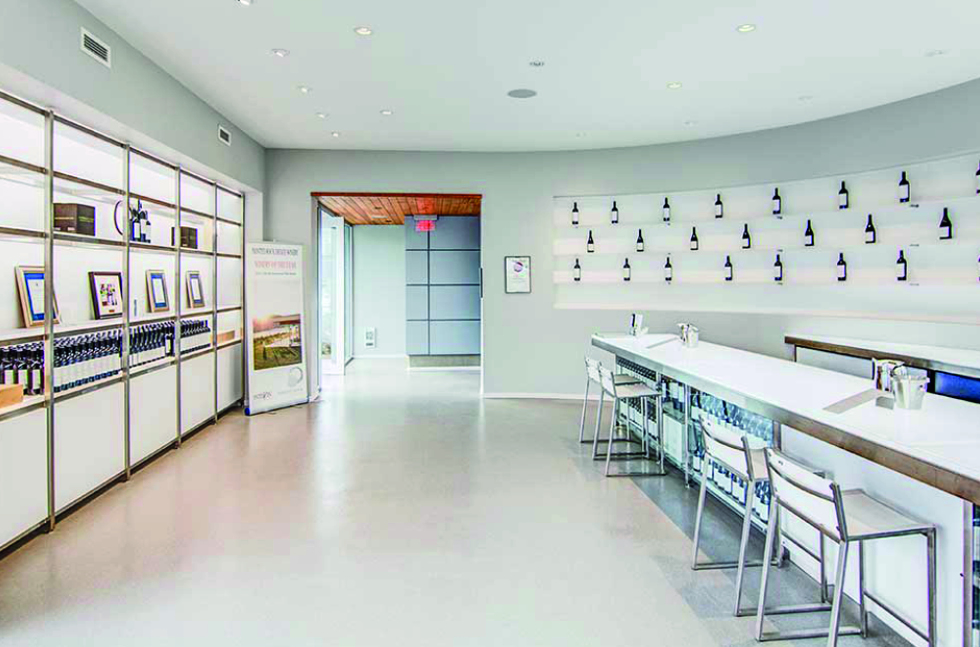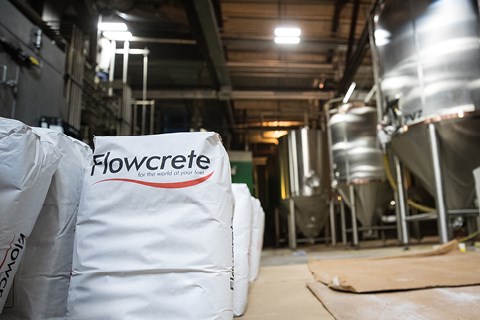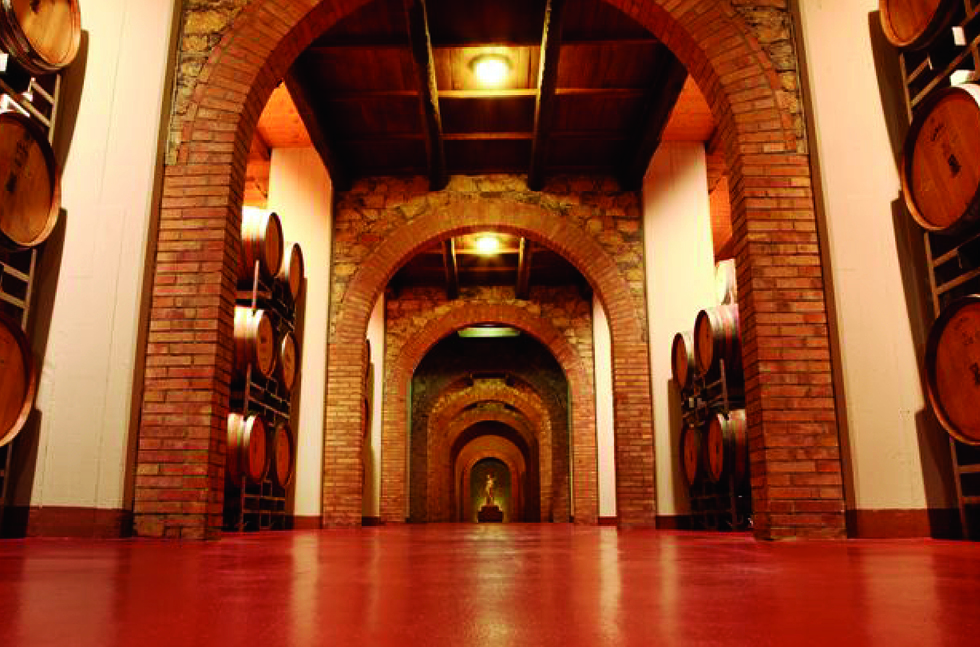How to Improve a Wine Cellar's Hygiene Using Polymer Floor Solutions
 Few products need to be stored as carefully as wine, as whilst it can improve with age the wrong conditions can also make it deteriorate rapidly. This means that understanding the risks of microbiological contamination and the benefits of effective prevention are important factors for a winery to consider. The choice of flooring in a wine cellar is an important step towards minimising the risk of contamination, as the right floor can help maintain a high level of hygiene which will help safeguard the stored wine from spoilage.
Few products need to be stored as carefully as wine, as whilst it can improve with age the wrong conditions can also make it deteriorate rapidly. This means that understanding the risks of microbiological contamination and the benefits of effective prevention are important factors for a winery to consider. The choice of flooring in a wine cellar is an important step towards minimising the risk of contamination, as the right floor can help maintain a high level of hygiene which will help safeguard the stored wine from spoilage.
In this guide, we will provide an overview of the choices available and factors to consider when specifying a resin flooring system within a winery.
|
Table of Contents |
What are the Contamination Risks?
Bacteria may be a natural part of the winemaking process, with an important role in aroma and flavour, but it can also cause unwelcome and irreversible effects. An unclean environment can cause many spoilage problems as a build-up of bacteria in any wine cellar will often lead to ruined products.
The recent edition of The Code of Good Manufacturing Practice for the Australian Grape and Wine Industry, states that "floors in the winery and storage areas should be free draining and free from debris build-up and should be kept in a sound condition. They should be constructed of materials that can be readily cleaned and designed to facilitate easy cleaning".
Additionally, "The bottling area should be specifically designed to prevent ingress of foreign matter and pests. It should be well-lit and ventilated to allow for the proper venting of fumes and steam from bottling washing equipment".
Even the cleanest of the facilities in the study was still at risk of spoilage problems if the floor was dirty — which emphasises the fact that hygiene in a winery must be a high priority to avoid the quality of the wine being adversely affected.
The flooring choice can impact the cleanliness of a cellar, as it affects the ability of bacteria and contaminants to thrive. Many wineries install concrete floors; however, this is porous and can crack easily if not properly maintained. Once the integrity of the surface has been compromised the floor will become a much more likely source of contamination, as microbiological contaminants will easily accumulate and the cleaning process will not be as effective in clearing them away.
The demands placed on cellar floors mean that they have to cope with traffic from heavy vehicles, the transporting of barrels, the corrosive and staining effects of wine acids as well as the humid conditions required for wine storage. All of these challenges could lead to cracks and imperfections if the floor is not robust enough to deal with them.
How a Polymer Floor Can Reduce Contamination
A layer of polymer creates a non-porous and seamless surface coating. This coating addresses the potential problems of concrete by creating a durable barrier that is able to withstand the stresses it is placed under without failing. The hard-wearing nature of a polymer floor helps to eliminate the problem of bacteria build up in the cracks, splits, and pores that are prevalent in concrete floors. When the polymer layer is combined with a robust sanitation process most pathogens will be quickly and easily removed, minimising the risks of spoilage and contamination within the winery.
Other Assets of Polymer Floors
The durability of a polymer floor is one of its best assets, lasting more than 25 years with correct maintenance. Not only does its hardwearing nature lend hygienic value, but it also saves the operator money on long-term floor maintenance costs.
One particular advantage of a polymer floor surface for wine cellars is that they can reduce the potential for falls in what can be a slippery workplace. Slip-resistant finishes can be added to limit the danger to employees and visitors from spillages and wet surfaces.
Different textures can be used and the floor can be broadcast with aggregates to improve its anti-slip properties. Coarsely textured surfaces are more difficult to clean so if you require both an anti-slip and easily cleaned surface you must consider the priorities of your venue before confirming a flooring choice.
Light levels are also an important factor to consider when storing wine, as strong or direct sunlight can react with compounds in the wine and ruin the taste. The reflective surface created by a polymer floor means that rooms need less illumination. This helps to lower light intensity, produce less heat and ultimately save on electricity.
Available Solutions
There are two different polymers that are ideal for application directly onto concrete substrates in wine cellars. Both of these resins are hardened when mixed with a curing agent. Each has its own attributes and characteristics that should be considered by wine cellar managers before implementing them.
The first type, epoxies, is a popular choice for non-processing zones of food and beverage manufacturing facilities. One of the reasons for this popularity is that they offer a level of resistance to organic acids, making them less likely to corrode than many other types of floors.
Bear in mind that epoxies provide limited resistance to thermal shock and so are liable to crack or de-bond in wine cellars employing demanding seasonal cleaning regimes such as steam cleaning or hot pressure washing.
The second type of polymer is polyurethane which offers enhanced performance properties to epoxies. Most polyurethane materials are mortar form combining cement and water-based technologies that create a high crosslinked density, making it strong and able to resist both chemical and forceful attacks.
The hardening period is much quicker for polyurethanes, as it takes around 5–12 hours, compared to an epoxy which can be twice as long. If time is of the essence or you need to move tanks or barrels around then this could be a very important consideration. A polyurethane solution will also perform better than an epoxy if your floor is likely to be wet or damp on a regular basis.
The requirements of each wine cellar will differ from the next so it is important to understand the individual requirements of a winery before deciding on a polymer floor finish. Talk to a trusted supplier about your business to ensure you decide upon the best solution.
Antimicrobial Polyurethane
Flowfresh is Flowcrete’s antimicrobial polyurethane flooring, which provides all the hard-wearing advantages of a polymer combined with an antimicrobial agent. Polygiene®, a silver-ion-based treatment, which is able to destroy up to 99.9% of all contaminants that land on the floor, is incorporated into the material. This range has been developed to provide the highest possible hygiene standards within the food and beverage industry.
As the antimicrobial treatment runs throughout the polyurethane resin bacteria will still be eliminated if any surface cracks occur in the resin layer. The Polygiene® additive will still be able to attack pathogens in these harder-to-clean crevices, adding another level of protection from contamination.
Away From The Wine Cellar
When considering the flooring solutions available it is more than likely that you will require different options in different areas of the facility, such as the tasting rooms, visitor routes, bottling halls, and loading areas. If you want certain areas to be more aesthetically pleasing then polymer floors can be ordered in a wide range of colours and reflecting surfaces to suit the different areas of your building.
Flowcrete provides a package to deliver all the flooring requirements for a construction project from one supplier.
Environmental Advantages
The environmental credentials of a winery can be important for the operation, image, and kudos of the organisation. A key environmental advantage of polymer floors is that they save water during the cleaning process as, thanks to their smooth and dense surface, less water is required to maintain a high level of hygiene.
Polyurethane flooring also contains a number of rapidly renewable materials in its make-up to help meet green building standards. The long life of polymer floors makes them more sustainable than concrete, reducing the need for a new floor which saves time, money, and resources as well as reducing pollution and the winery’s environmental impact.
Flowcrete Case Studies: Flooring for Beverage Environments
Check out the case studies from around Australia and the Pacific regions, where Flowcrete flooring systems are used for wineries and breweries.
This guide has been produced to give an overview of the choices available and factors to consider when specifying a resin flooring
system within a winery.
Detailed recommendations and advice are available from our network of regional technical and sales representatives.






